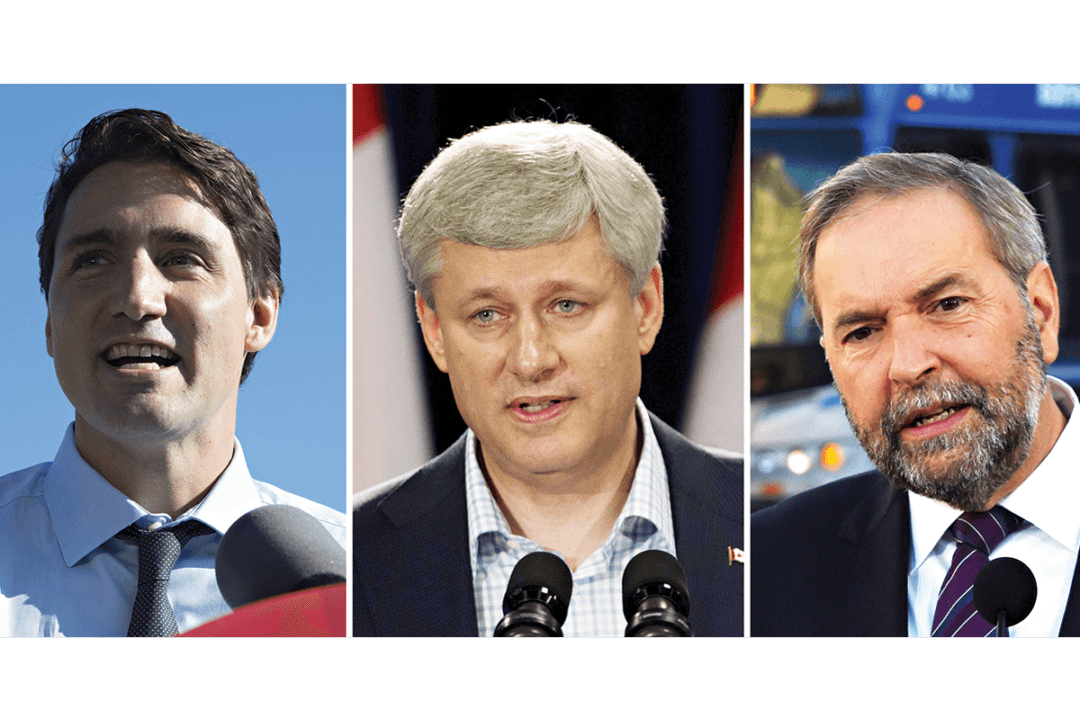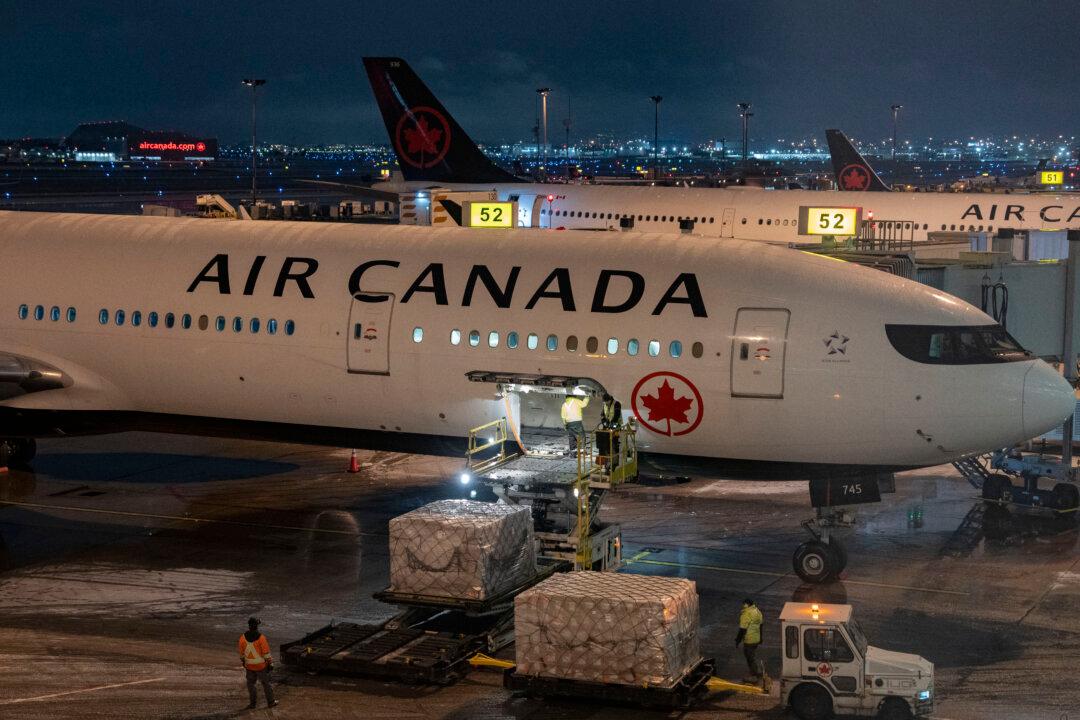OTTAWA—Stephen Harper and Tom Mulcair found themselves in unfamiliar economic territory Wednesday, Sept. 2—sharing the same page on when they think it is acceptable to plunge the country into a deficit.
The Conservative and New Democrat leaders, along with their Liberal counterpart Justin Trudeau, still expressed sharp differences on the economic way forward following Statistics Canada’s recession pronouncement a day earlier.
The three federal leaders attempted to put a bit more flesh on the bones of their respective economic positions after the agency reported on Tuesday that the economy had contracted for a second straight quarter—the technical definition of a recession.
But as they dealt with the fallout from the data, it was Harper and Mulcair who found themselves occupying the same position on an important, related question: when is it OK to run a deficit?
Both leaders are opposed to them, and are promising balanced budgets if elected. But when asked about deficits, separately, on the campaign trail Wednesday, they gave strikingly similar answers.
Harper and Mulcair both agreed on the need for stimulus following the Great Recession of 2008-09.
“Back in 2008-2009, we faced two circumstances we do not face today, both of them are important,” Harper said in North Bay, Ont., citing the drop in global output and the breakdown in the financial system.





